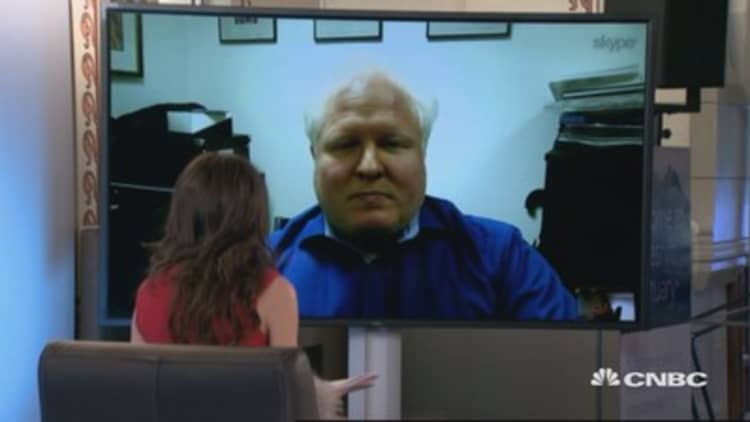
"Disruption" was one of 2015's big buzz words with established companies trying to come up with new ways to fight off hot start-ups attacking their business models.
One entrepreneur has come up with one way: Artificial intelligence (AI).
Chris Boos, the founder and chief executive of German start-up Arago and expert on AI, said that businesses could hedge against disruptive companies if they spent their money in the right way.
"Artificial intelligence allows enables you to do things previously only humans were doing, especially in technology where you have very scarce resources," Boos said during a CNBC event at the World Economic Forum in Davos last week.
"The big businesses, the old economy, is not doing really well there. They are spending like 80 percent of their budget on technology on just keeping things as they are today and AI is about the only thing that can shift that budget so that it can respend the money that will actually go towards the future and digitalization."
Boos' enthusiasm for AI runs against fears that robots and AI could cause huge displacement in the workforce. According to a WEF report released last week, over the next five years, automation and robots will eliminate 5.1 million jobs globally.
But Boos, whose company Arago develops AI software to help replace IT workers, said that he sees little board-level pushback as it could help a company's productivity.
"We see that people on the ground, the people who actually operate IT today, they love this, they want an AI to do that more and more mundane things because they know they are valuable talent that can be employed so much better," Boos said.







